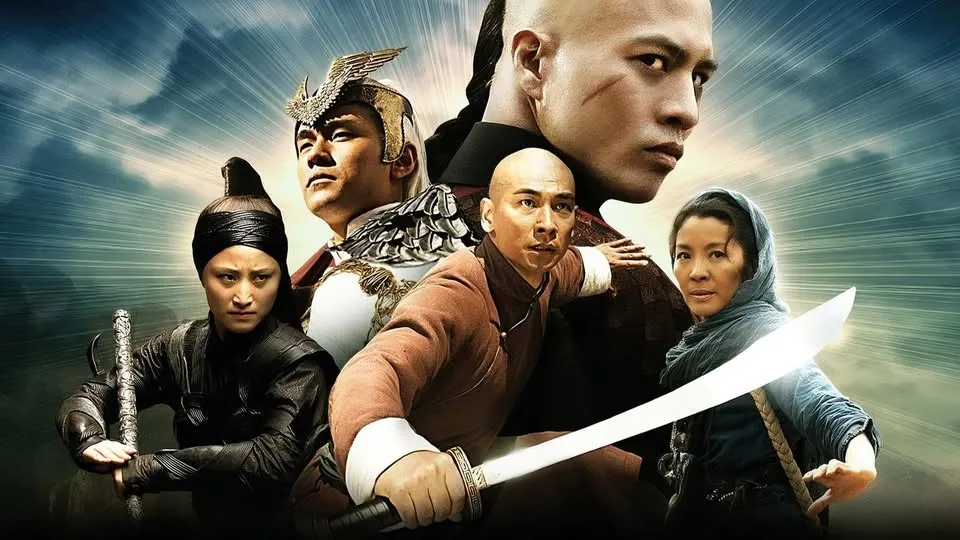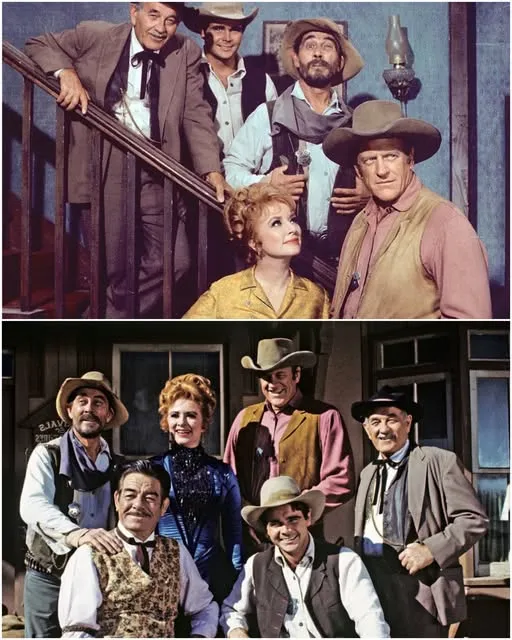True Legend (2010) is a thrilling martial arts film directed by Yuen Woo-ping, blending action, drama, and deep philosophical themes. Set in ancient China, the story follows Su Can, a legendary martial artist who, after a series of tragic events, is forced to confront his past, redefine his strength, and seek redemption. Combining breathtaking fight choreography with emotional storytelling, True Legend is not only about intense combat but also about personal transformation, the costs of violence, and the pursuit of inner peace. The film centers on Su Can’s journey from a revered warrior to a broken man and back again, as he overcomes personal and physical challenges to reclaim his honor and sense of self. At the beginning of the film, Su Can (played by Vincent Zhao) is a highly skilled martial artist and a former general who has left behind the violence and brutality of his past. Having retired from his life as a warrior, Su Can seeks peace and happiness with his wife, Yuan Ying (played by Zhou Xun), and their young son. He longs for a quiet life, away from the world of martial arts and warfare that once defined him. However, his desire for peace is short-lived when his older brother, Yuan Lie (Jackie Chan), driven by jealousy and bitterness, betrays him. Yuan Lie, who is envious of Su Can’s reputation and accomplishments, conspires with the corrupt warlord General He (David Chiang) to destroy Su Can’s life. In a brutal attack orchestrated by Yuan Lie, Su Can is severely injured, and the life he had hoped for is shattered. His injuries leave him physically broken and mentally scarred, and Su Can retreats into the wilderness to recover both physically and emotionally. During this time, he is forced to come to terms with the violent nature of his past and the immense personal cost of his previous lifestyle.

As Su Can struggles to heal from his wounds, both physical and emotional, he encounters a wise martial arts master who becomes his mentor. This mentor teaches Su Can the ancient and mysterious art of the “Five Venoms,” a legendary and dangerous fighting style that encompasses the essence of five deadly animals: the snake, scorpion, mantis, tiger, and crane. Each animal represents a different style of fighting, with distinct philosophies and techniques that must be mastered. This style becomes the key to Su Can’s recovery, allowing him to regain his martial arts abilities and seek a path toward redemption. However, Su Can’s journey is not simply about physical recovery—it is also about emotional healing and personal growth. As he trains under the guidance of his new mentor, Su Can learns that true strength lies not only in mastering physical combat but in controlling one’s emotions, understanding one’s inner self, and finding balance in life. Through this grueling process of training, Su Can gradually comes to terms with the violence of his past and begins to understand the deeper, spiritual aspects of martial arts. The Five Venoms style becomes not just a weapon for battle but a path to self-discovery, teaching Su Can to embrace peace, humility, and discipline in a way he had never understood before. The final act of True Legend brings Su Can face to face with his past in a dramatic and emotionally charged conclusion. With his newfound strength and wisdom, Su Can prepares to confront the warlord General He and his brother Yuan Lie, who are now determined to destroy him once and for all. As the film reaches its climax, Su Can must put his training and personal growth to the ultimate test. The film’s final battle sequences are a visual feast, featuring epic and intricate martial arts choreography that showcases the skill and power Su Can has regained. However, the fight is not just physical; it is deeply symbolic, representing Su Can’s struggle for redemption and his desire to end the cycle of violence that has dominated his life. In these confrontations, Su Can must not only defeat his enemies but also confront his own inner demons. The final showdown with Yuan Lie is a deeply emotional and personal moment, where Su Can’s victory is not just about triumphing over his brother but about reclaiming control over his own destiny. The fight with General He, who embodies the corrupt and destructive forces Su Can has been fighting against, is equally symbolic, representing the battle between good and evil, and between the past and the future.

In the aftermath of these confrontations, Su Can achieves a sense of peace and closure, both in his relationships and within himself. The film’s resolution is not about vengeance or revenge but about the power of forgiveness, self-awareness, and the decision to break free from the cycle of violence. Su Can returns to his family, having undergone a profound transformation. His journey is a reminder that true strength is not just physical prowess but the ability to face one’s past, overcome personal shortcomings, and find balance within. Through his battles—both external and internal—Su Can learns that the path to true heroism is not through domination but through personal growth, emotional healing, and a commitment to peace. True Legend is more than just a martial arts film. It is a story of personal transformation, the redemptive power of martial arts, and the pursuit of inner peace. Through its beautifully choreographed fight scenes and its deep emotional core, the film explores the complexities of strength, honor, and redemption. The character of Su Can, played with depth and intensity by Vincent Zhao, undergoes a powerful journey of self-discovery, confronting the demons of his past while embracing the wisdom that comes with mastering not just physical combat but emotional resilience and spiritual balance. The film offers an exciting and heartfelt exploration of the human spirit, showing that true legend is not created by conquering others but by conquering oneself. True Legend stands as a testament to the enduring power of martial arts as both a physical and philosophical pursuit, offering an inspiring message about overcoming adversity, seeking redemption, and embracing the path of self-mastery.




